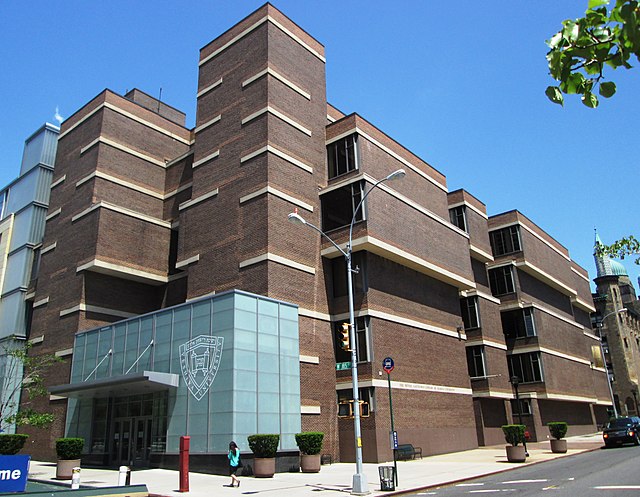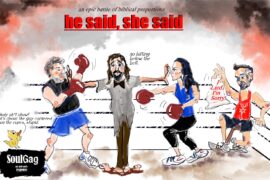The Enlightenment movement established liberalism as the ideological paradigm for the new economic system as capitalism replaced feudalism throughout Europe.
By the late 18th Century, these shockwaves were beginning to hit the Jews of Central Europe. “Emancipation” had stripped isolated and autonomous Jewish communities of their ability to self-govern, seeking to integrate them into the new bourgeois liberal superstructure.
The Haskalah movement, which had argued that the lack of Jewish integration into their host nations was the primary cause of their troubles, had spearheaded the importation of the Enlightenment into Jewish spaces. The Haskalah encouraged Jews to move out of their isolated ghetto communities, learn the languages of their host nations, engage in the cultures of their neighbors, adopt the national identities of their host nations and regulate their Jewishness to a secondary “confessional” status, a religion rather than an identity.
By the Second Hamburg Temple disputes of 1841, they even began to alter Jewish liturgy to conform to the sensibilities of liberal ideological principles and local nationalisms.
The reforms of the Haskalah within Jewish spaces came to the fore at the 1868 Universelle Israelite Congress. The gathering of Hungary’s Jews has been convened to unite them in the face of growing internal divisions and changing external conditions, as the kingdom of Hungary had emancipated the Jews under its rule just the year before. The congress, however, became the scene for what would be known as “the schism” in Hungarian Jewry.
Delegates soon polarized into two camps around the proposed resolution that all further rulings would be based on “the Torah and Talmud, as they are interpreted in the Shulḥan Arukh.” When the majority of the delegates fiercely rejected this resolution, the supportive minority seceded from the congress and successfully petitioned the kingdom of Hungary to recognize them, the “Jewish Orthodox Faithful,” as separate from the broader Jewish community of Hungary, which would then brand itself as “Neolog” (and later “Reform”).
This secessionist movement, or Austritt, spread around the Jews of Central Europe. At its head was Rav Shimshon Rafael Hirsch, who led his community of Frankfurt through Austritt in 1876. Rav Hirsch ruled that secession was required from the mainstream Jewish community when maskilim (adherents of the Haskalah) gained positions of leadership. Communities across Central Europe would heed Rav Hirsch’s ruling, politically and socially isolating themselves from the conflicted communities as separate, “Orthodox” Jewish bodies.
The very adoption of the term “Orthodox” itself, however, should be seen as a crucial moment of Jewish colonization. The term already frames Jewish identity and adherence to our people’s ancient folkways within the context of “religion” as understood in European society. Aside from the fact that several Christian denominations self-identified by that label, “Orthodox” people and institutions already carry the inference of being rigid and reactionary within the framework of Enlightenment thinking. Rather than cast Jews loyal to their identity as a long-oppressed minority population resisting the same kind of cultural homogenization we had resisted so many times in the past, it tacitly bought into the ideological paradigm of the Haskalah and casted the “Orthodox” Jews as a parochial religious group unwilling to move with the tide of history.
Rav Hirsch continued to develop his platform, which he termed “Torah im Derekh Eretz” (“Torah with the way of the land”) until his passing in 1888.
Torah im Derekh Eretz posited that Jews should place as their top priority the purity of Torah and their behavioral commitment to halakha as well as the ability to participate in the new liberal Europe and to materially endure in the new capitalist system. The degree to which this interpretation of “derekh eretz” is desirable or necessary is a point of contention between the “modern” and “ultra” variants of Orthodox Judaism but the overall liberal ideological framework remains intact.
Although ostensibly a reaction to the Haskalah in terms of halakhic commitment and observance, the new Orthodox Jewish movement integrated the ideological paradigm of the Enlightenment and adopted the Haskalah movement’s rebranding of Jewish identity from an exiled population committed to returning home to “Germans” and “Frenchmen” of the “Mosaic persuasion” – essentially Europeans with a private religion called “Judaism.”
From the perspective of Rav Hirsch and his students, a concession to the Haskalah may have been necessary in order to keep Jews in the fold. The legal and ritual components of Jewish identity were zealously championed at the expense of that identity’s national and territorial components. The concept of a Jewish people had to be deemphasized and mystified in order to preserve the Torah and its adherence. Jewish identity was to be regulated to a private, personal set of behaviors and beliefs while Jews were expected to integrate into the national identities of their host nations in order to sustain themselves.
There was another path presented by Rav Yisrael Salanter at the time.
As the founder of the Mussar movement and contemporary of Rav Hirsch, Rav Salanter advocated for helping the maskilim to return to fully embracing Torah and Jewish identity, a task that perhaps seemed easier in Rav Salanter’s Lithuanian surrounding, where the spread of the Enlightenment was negligible compared to Central Europe.
The larger issue, however, is that Jews need to be conscious of the fact that we have been conditioned since the Haskalah – both by its adherents and Orthodox opponents – to look at the world and at ourselves through the lens of another civilization’s ideological paradigm. We need to break our self-constructed prison of merely reacting to Western affairs as did the maskilim towards discrimination, the Zionists towards anti-Semitism, and the Orthodox towards assimilation.
The people of Israel has our own ideological worldview and independent national mission that we must consistently prioritize.
Less than a half-century after the height of the Austritt movement and the birth of Orthodox Judaism, Rav Zvi Yehuda HaKohen Kook published Orot HaT’ḥiya, a collection of the writings of his father, HaRav Avraham Yitzḥak HaKohen Kook.
In chapter 20, Rav Kook discusses the Austritt phenomenon at length:
“There is no end to the physical and spiritual evils dividing the nation into sectors, even though total separation as imagined by those who cruelly operate is impossible and will never be. This is really a thought of generally idol worship, which we promised would not be fulfilled… As every idolatrous thought, it destroys and worries, even though it has not, and will not, come to deed. The foundation of righteousness of the just in every generation is supported by the wicked as well, who with all their wickedness, as long as they cling with their heart’s desire to the collectivity of the nation, are referred to (by the verse), ‘Your people are all righteous’ (Yeshayahu 69:21)… The imagined division undermines the foundation of all holiness.”
Rav Kook derides the idea of the “individual tzadik” created by Orthodox Judaism – the idealization of a cosmopolitan Jew who observes Shabbat once a week, prays three times a day, eats kosher food, and lives his individual life within the “four cubits of halakha” (Eruvin 48a) but otherwise sees the world through the ideological paradigm of another civilization and directs his efforts to being a contributing member of that civilization.
From the perspective of our ancestors, it’s utterly insufficient for a Jew to partake only in individual observance of ritual precepts and laws. A Jew must be engaged in Israel’s national life, in the ongoing story of our people. The righteousness and holiness of the individual Jew comes from his identification with the Jewish collective. By embracing the bourgeois liberal ideological paradigm of the West and subtly playing down the central importance of Jewish national identity, Orthodox Judaism actually disconnects Jews from the source and purpose of their true holiness.






Beautifully written article with some thought provoking critical ideas. But I hope you appreciate my disagreements…
I think you’ve focused too harshly on the origin of the word “orthodox” and less on what it means for Jewish people to identify with it (which is vastly different from Christians or Westerners and for Jews in itself has a wide spectrum). You’ve identified the root source of the orthodox-non-orthodox divide as the Haskalah but shift the blame on to those who adopted the term orthodox. But you also acknowledge that orthodoxy was a reactionary mechanism for Jews to hold onto Torah at the “expense of that identity’s national and territorial components”. If we really wanted to decolonize our identity, I think we would need to go a step further and rule that “nationalism” is a Western construct too… for example: should we really criticize “anti-Israel” Jews for not upholding Zionism (nationalism) when deep down we would both agree they are fundamentally nationalist and have not given up their “territorial components”, just not in the sense the modern world has meant it and are maybe even closer to what Judean nationalism really means: they 100% believe in Israel and her national aspirations across the entirety of our land but also in that there will be a “more appropriate time” for the construction of the state – the messianic age – where the very divides we are talking about wouldn’t exist because of Hashem’s universal acceptance.
On the other hand, Reform Judaism is founded on the distortion of tradition and Torah law at the expense of the “territorial components” of our belief system – it is a platform that levels Judaism with any other “religion” in that it’s for anyone and everyone and with no set rules. It’s invited people to use our identity against us – the token Jews of the world – with no stronghold on our ancient traditions, value or unity – some are complete foreigners who after a few “liberalized” Torah lessons want to be considered under our same bracket. Others are confused, raising children to believe they are Jewish when there is almost nothing Jewish about them – a recipe for marrying out and assimilation.
Of course we should consider the origin of the word “Jew” too. And ask, why has Am Yisrael collectively adopted the anglicized name of one tribe? What does it mean to be part of and from Yehuda? How has Judaism evolved as a portable suitcase?
Largely, religious components upheld in orthodox circles are those that reiterate the answers to these questions. On the contrary, reformism has opened that suitcase as a free for all.
I don’t see how there could have been an alternative solution to the orthodox movement. It’s created a necessary divide between those willing to maintain belief and those who are not. Some Orthodox Jews are predominantly practicing the “4 cubits of halakha” in an otherwise western lifestyle – and I commend them for their effort and commitment in a secular environment. Other Orthodox Jews are extremists living lives completely closed from the outside world – to an extent I can commend that too but we also need to recognize that it technically comes at the expense of freedom. And without necessarily being able to see eye to eye, they still form a collective and would agree on a lot more in terms of “the source and purpose of their true holiness” than with those who have made their own spectrum entirely.